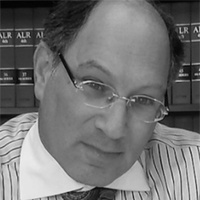Glen Burnie DUI-DWI Lawyer, Maryland
Sponsored Law Firm
-
 x
x

Click For More Info:
-
Isaac Klein Attorney at Law
1 N Charles Street Suite 350 Baltimore, MD 21201» view mapAccident & Injury Law You Need Isaac To Defend You!
Issac Klein has been serving the citizens of Maryland since opening his practice in 1982. If your claim cannot be settled for a fair amount, he can prepare to file suit and go to trial.
800-768-4560
James E. Crawford
✓ VERIFIED *Status is reviewed annually. For latest information visit hereDivorce & Family Law, Criminal, DUI-DWI, Felony, Child Custody
Over 30 Years' Maryland Legal Expertise | MD Lawyers
**Helping Good People in Tough Situations Since 1992** My name is Jim Crawford. I founded the Law Office of James E. Crawford, Jr., & Associates --... (more)
Michele M. Cinque
Criminal, DUI-DWI, Federal, Felony
Status: In Good Standing *Status is reviewed annually. For latest information visit here
FREE CONSULTATION
CONTACTRobert A. Siegel
Traffic, Misdemeanor, DUI-DWI, Criminal
Status: In Good Standing *Status is reviewed annually. For latest information visit here Licensed: 27 Years
FREE CONSULTATION
CONTACTDavid N. Mabrey
Real Estate, DUI-DWI, Criminal, Car Accident
Status: In Good Standing *Status is reviewed annually. For latest information visit here Licensed: 35 Years
FREE CONSULTATION
CONTACT Isaac Klein Baltimore, MD
Isaac Klein Baltimore, MD Practice AreasExpertise
Practice AreasExpertise
